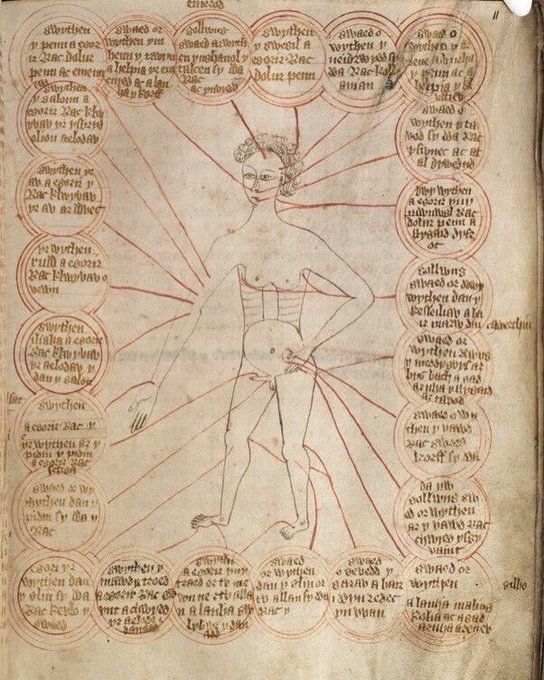Mildly interesting
-
@Copper said in Mildly interesting:

I would imagine she has it memorized by now… 30 years of playing the same music night after night after night? Ugh…
@LuFins-Dad said in Mildly interesting:
I would imagine she has it memorized by now… 30 years of playing the same music night after night after night? Ugh…
Mrs. George and I had a similar conversation a few years ago - we were talking about a musical that we saw, and I said, "I wonder if it gets boring doing the same show, night after night for six weeks...."
-
@LuFins-Dad said in Mildly interesting:
I would imagine she has it memorized by now… 30 years of playing the same music night after night after night? Ugh…
Mrs. George and I had a similar conversation a few years ago - we were talking about a musical that we saw, and I said, "I wonder if it gets boring doing the same show, night after night for six weeks...."
@George-K said in Mildly interesting:
I said, "I wonder if it gets boring doing the same show, night after night for six weeks...."
I was active in theater in my yoot. The thing is, it isn't the same. It's always different because little things happen Monday that don't happen Tuesday. The audience applauds a line on Monday and on Tuesday, the same line lies dead. Actors forget lines and their colleagues have to adlib them back. Singing is spectacular one night and dullsville the next.
Never the same.
And the closing applause never gets old.
-
@George-K said in Mildly interesting:
I said, "I wonder if it gets boring doing the same show, night after night for six weeks...."
I was active in theater in my yoot. The thing is, it isn't the same. It's always different because little things happen Monday that don't happen Tuesday. The audience applauds a line on Monday and on Tuesday, the same line lies dead. Actors forget lines and their colleagues have to adlib them back. Singing is spectacular one night and dullsville the next.
Never the same.
And the closing applause never gets old.
@Catseye3 said in Mildly interesting:
@George-K said in Mildly interesting:
I said, "I wonder if it gets boring doing the same show, night after night for six weeks...."
I was active in theater in my yoot. The thing is, it isn't the same. It's always different because little things happen Monday that don't happen Tuesday. The audience applauds a line on Monday and on Tuesday, the same line lies dead. Actors forget lines and their colleagues have to adlib them back. Singing is spectacular one night and dullsville the next.
Never the same.
And the closing applause never gets old.
It's hard to imagine that playing music every day could ever be as enjoyable as what I've been doing for the past 34 years.
Every day the lunch menu is a little different!
And the sound of Windows starting up never gets old.

-
@Catseye3 said in Mildly interesting:
@George-K said in Mildly interesting:
I said, "I wonder if it gets boring doing the same show, night after night for six weeks...."
I was active in theater in my yoot. The thing is, it isn't the same. It's always different because little things happen Monday that don't happen Tuesday. The audience applauds a line on Monday and on Tuesday, the same line lies dead. Actors forget lines and their colleagues have to adlib them back. Singing is spectacular one night and dullsville the next.
Never the same.
And the closing applause never gets old.
It's hard to imagine that playing music every day could ever be as enjoyable as what I've been doing for the past 34 years.
Every day the lunch menu is a little different!
And the sound of Windows starting up never gets old.

@Doctor-Phibes lol
-
On a cloudless day, my solar panels generate energy at maximum capacity for about three hours. I guess that means that certain small angles of the sun are without consequence, while larger angles decrease productivity along what looks like a normal distribution, but probably isn't.

-
@Mik said in Mildly interesting:
I don't want that steak.
Pretty much any freshly cut meat will do that - sodium channels....
Chinese meat inspector Lv Suwen explained the phenomenon like this in a 2015 article: “The central nervous system is dead but the nerve-endings in the muscles are still firing resulting in the jumping, because the nerves are not yet dead. This will stop after a short time.”
While this ribeye reanimation may seem revolting, it’s actually an indicator of high-quality meat. “You can rest assured, this piece of meat is very fresh and is from a freshly slaughtered animal,” Suwen declared.
Nonetheless, viewers were revolted by the spectacle with one aghast gawker calling the dancing beef “the least appetizing thing I’ve ever seen.”
-
32,883 mph...
https://en.wikipedia.org/wiki/1972_Great_Daylight_Fireball
The Great Daylight Fireball (also known as the Grand Teton Meteor ) was an Earth-grazing fireball that passed within 57 kilometres (35 mi; 187,000 ft) of Earth's surface at 20:29 UTC on August 10, 1972. It entered Earth's atmosphere at a speed of 15 kilometres per second (9.3 mi/s) in daylight over Utah, United States (14:30 local time) and passed northwards leaving the atmosphere over Alberta, Canada. It was seen by many people and recorded on film and by space-borne sensors.[3] An eyewitness to the event, located in Missoula, Montana, saw the object pass directly overhead and heard a double sonic boom. The smoke trail lingered in the atmosphere for several minutes.
The atmospheric pass modified the object's mass and orbit around the Sun. A 1994 study found that it is probably still in an Earth-crossing orbit and predicted that it would pass close to Earth again in August 1997. However, the object has not been observed again and so its post-encounter orbit remains unknown.
Analysis of its appearance and trajectory showed the object was about 3–14 m (10–45 ft) in diameter, depending on whether it was a comet made of ice or a stony and therefore denser asteroid. Other sources identified it as an Apollo asteroid in an Earth-crossing orbit that would make a subsequent close approach to Earth in August 1997. In 1994, Czech astronomer Zdeněk Ceplecha reanalysed the data and suggested the passage would have reduced the asteroid's mass to about a third or half of its original mass (reducing its diameter to 2–10 metres (6.6–32.8 ft)).
The object was tracked by military surveillance systems and sufficient data obtained to determine its orbit both before and after its 100-second passage through Earth's atmosphere. Its velocity was reduced by about 800 metres per second (2,600 ft/s) and the encounter significantly changed its orbital inclination from 15 degrees to 7 degrees. If it had not entered at such a grazing angle, this meteoroid would have lost all its velocity in the upper atmosphere, possibly ending in an airburst, and any remnant would have fallen at terminal velocity
-


